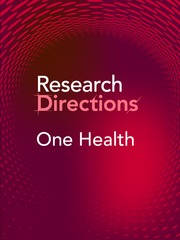Context
In the aftermath of the SARS-CoV-2 pandemic, and in due course for a full recovery to reduce the health burden and complications of the disease, the public discussion has moved from a pandemic slowdown to a more monitoring-based approach in public health. Stay-at-home rules, quarantine requirements for the infected ones, along with local lockdowns and social distancing measures around the planet have shown how vulnerable could be the ties between one’s demographic origins, morbidity and mortality.
A growing body of literature has focused on the roles that social disparities will play in pre-existing/premorbid human conditions and to access tailored healthcare treatment and services, including the vaccine. In this study context, we are inquiring the One Health community on how the pandemic events would have shaped, or even spread, the expression of human agonistic behaviour.
Being the result of a combination from internal and external cues, agonistic behaviour will refer to the biological (e.g., neuronal patterns, metabolism, immune and inflammatory responses, fertility and reproduction, possibly genomics), psychological (e.g., domestic, intimate and community violence, mental health conditions leading to isolation or caused by isolation, negative emotions and other risk-taking behaviour) and social underpinnings (e.g., political conflicts, environmental modifications and animal welfare, climate change policies, dispersal of knowledge or development of new biases).
By referring to one’s agonistic behaviour, this research question invites authors to present original research and review articles which include the study of defensive or aggressive behaviour on individual entities and the impact on global communities.
How to contribute to this Question
If you believe you can contribute to answering this Question with your research outputs find out how to submit in the Instructions for authors. This journal publishes results, analyses, impact papers and additional content such as preprints and “grey literature”. Questions will be closed when the editors agree that enough has been published to answer the Question so before submitting, check if this is still an active Question. If it is closed, another relevant Question may be currently open, so do review all the open Questions in your field. For any further queries check the information pages or contact this email onehealth@cambridge.org.
Competing interests
The authors declare none.






